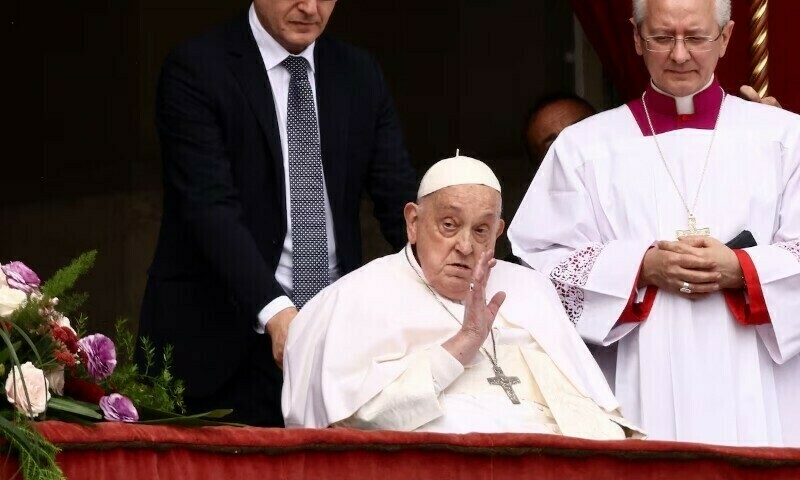More than 60 MPs sign letter calling for time-limited visas for 18- to 30-year-olds to travel freely
Keir Starmer is under pressure from more than 60 Labour MPs to allow thousands of young Europeans to live and work in the UK, a move seen as key to unlocking a more ambitious trade reset with Brussels.
The chancellor, Rachel Reeveshtt, said discussions on a potential scheme were ongoing, in the clearest hint yet that the government is preparing to do a deal.
A youth mobility scheme that would allow British and European 18- to 30-year-olds to travel freely has been seen as a key European demand in reaching an economic deal with the UK.
Sources suggested the EU would now be open to putting a quota and time limit on such visas, opening the door for an agreement.
In a letter to Nick Thomas-Symonds, the minister negotiating with Brussels, 70 Labour MPs and peers said a time-limited, capped youth visa scheme should be agreed and trade cooperation deepened beyond the government’s current ambitions.
Keir Starmer is under pressure from more than 60 Labour MPs to allow thousands of young Europeans to live and work in the UK, a move seen as key to unlocking a more ambitious trade reset with Brussels.
The chancellor, Rachel Reeves, said discussions on a potential scheme were ongoing, in the clearest hint yet that the government is preparing to do a deal.
A youth mobility scheme that would allow British and European 18- to 30-year-olds to travel freely has been seen as a key European demand in reaching an economic deal with the UK.
Sources suggested the EU would now be open to putting a quota and time limit on such visas, opening the door for an agreement.
In a letter to Nick Thomas-Symonds, the minister negotiating with Brussels, 70 Labour MPs and peers said a time-limited, capped youth visa scheme should be agreed and trade cooperation deepened beyond the government’s current ambitions.
The intervention comes before a crucial few weeks for the UK’s relationship with the EU. Starmer is due to meet the European Commission president, Ursula von der Leyen, in London on Thursday as momentum builds towards a UK-EU summit in May.
Cabinet differences remain on the shape a youth visa deal could take. Reeves is said to be in favour of a deal that includes time-limited youth visas – the highest priority for Brussels – but the home secretary, Yvette Cooper, has insisted on a cap on numbers, with a time limit of one year.
One source with knowledge of the talks said the cap would probably be about 70,000 people. “Yvette is pursuing the task she has been set by the PM – to reduce net migration,” a source close to the home secretary said.
Asked in Washington on Wednesday about the possibility of a youth mobility scheme, Reeves said: “We want to see net migration fall as a government and we’ve set out plans to achieve that. We also want to have control of who comes into this country. That is really important for us.
“But we’re not going to be returning to free movement. We will bring down net migration, and the talks are ongoing with the EU around reducing trade barriers.”
One EU source said: “Everyone is being cautious but there is a desire to find a way that removes any suggestion that this is going to increase migration. It could come in many forms and quotas is just one.”
In their letter to the minister, 62 MPs led by the Welwyn Hatfield MP, Andrew Lewin, said the government should work with the EU to create new opportunities for British young people to work and travel in the EU, similar to agreements with more than a dozen countries including Australia and Canada.
“We want to see a new and bespoke youth visa scheme for UK and EU citizens aged under 30. As with all of the UK’s existing schemes, we believe this should be time-limited and subject to a cap on numbers,” the MPs said.
It is understood the UK is on the verge of agreeing to enter into negotiations on three key topics including the youth mobility scheme, a sanitary and phytosanitary (SPS) deal to eliminate checks on food and drink being exported to the EU and entering Northern Ireland from Great Britain, and a deal on carbon emissions.
It is thought the SPS deal would be based on a deal the EU struck with Switzerland in 2023, but with substantial changes. “The EU hates the Swiss mode. It is full of complexity and inefficiency but that is not to say it could not be a conceptual model to build on,” an EU source said.
A defence pact is almost certain after the EU’s white paper on defence in March paved the way for British defence companies such as Babcock and BAE Systems to bid for money from the new €150bn (£129bn) EU defence fund.
UK and European sources also expect an announcement on trafficking and intelligence sharing as a way of signalling a tough approach to irregular migration.
Full negotiations are expected to be given the go-ahead to start by the autumn, once the European Commission has a mandate from member states.
The MPs’ intervention has been privately welcomed by some ministers as a tacit signal of the outline of what the government is seeking to achieve. In their letter to Thomas-Symonds, the MPs say the UK should seek to allow products to be tested in the UK to reduce cost and complexity for UK and EU firms.
The intervention comes before a crucial few weeks for the UK’s relationship with the EU. Starmer is due to meet the European Commission president, Ursula von der Leyen, in London on Thursday as momentum builds towards a UK-EU summit in May.
Cabinet differences remain on the shape a youth visa deal could take. Reeves is said to be in favour of a deal that includes time-limited youth visas – the highest priority for Brussels – but the home secretary, Yvette Cooper, has insisted on a cap on numbers, with a time limit of one year.
One source with knowledge of the talks said the cap would probably be about 70,000 people. “Yvette is pursuing the task she has been set by the PM – to reduce net migration,” a source close to the home secretary said.
Asked in Washington on Wednesday about the possibility of a youth mobility scheme, Reeves said: “We want to see net migration fall as a government and we’ve set out plans to achieve that. We also want to have control of who comes into this country. That is really important for us.
“But we’re not going to be returning to free movement. We will bring down net migration, and the talks are ongoing with the EU around reducing trade barriers.”
One EU source said: “Everyone is being cautious but there is a desire to find a way that removes any suggestion that this is going to increase migration. It could come in many forms and quotas is just one.”

In their letter to the minister, 62 MPs led by the Welwyn Hatfield MP, Andrew Lewin, said the government should work with the EU to create new opportunities for British young people to work and travel in the EU, similar to agreements with more than a dozen countries including Australia and Canada.
“We want to see a new and bespoke youth visa scheme for UK and EU citizens aged under 30. As with all of the UK’s existing schemes, we believe this should be time-limited and subject to a cap on numbers,” the MPs said.
It is understood the UK is on the verge of agreeing to enter into negotiations on three key topics including the youth mobility scheme, a sanitary and phytosanitary (SPS) deal to eliminate checks on food and drink being exported to the EU and entering Northern Ireland from Great Britain, and a deal on carbon emissions.
It is thought the SPS deal would be based on a deal the EU struck with Switzerland in 2023, but with substantial changes. “The EU hates the Swiss mode. It is full of complexity and inefficiency but that is not to say it could not be a conceptual model to build on,” an EU source said.
A defence pact is almost certain after the EU’s white paper on defence in March paved the way for British defence companies such as Babcock and BAE Systems to bid for money from the new €150bn (£129bn) EU defence fund.
UK and European sources also expect an announcement on trafficking and intelligence sharing as a way of signalling a tough approach to irregular migration.
Full negotiations are expected to be given the go-ahead to start by the autumn, once the European Commission has a mandate from member states.
The MPs’ intervention has been privately welcomed by some ministers as a tacit signal of the outline of what the government is seeking to achieve. In their letter to Thomas-Symonds, the MPs say the UK should seek to allow products to be tested in the UK to reduce cost and complexity for UK and EU firms.







